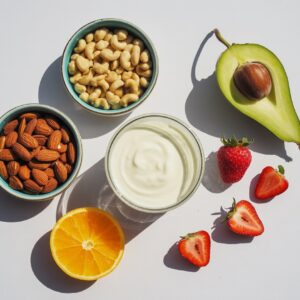While counting calories dominates many diet conversations, the quality of those calories—specifically their micronutrient content—plays an equally important role in achieving optimal health. Micronutrients, including vitamins and minerals, are essential compounds our bodies need in small amounts to function properly.
What Are Micronutrients?
Micronutrients encompass vitamins (like A, C, D, E, K, and B-complex) and minerals (such as iron, calcium, magnesium, and zinc). Unlike macronutrients (carbohydrates, proteins, and fats) that provide energy, micronutrients support crucial bodily functions including immune response, bone health, brain function, and cellular repair.
The Hidden Hunger Epidemic
Even in developed countries, micronutrient deficiencies are surprisingly common. This “hidden hunger” occurs when people consume enough calories but lack essential vitamins and minerals. Processed foods, while calorie-dense, are often micronutrient-poor, leading to a paradox where individuals can be simultaneously overfed and undernourished.
Key Micronutrients and Their Functions
Vitamin D supports bone health and immune function. Despite its importance, deficiency is widespread, especially in regions with limited sunlight. Natural sources include fatty fish, egg yolks, and fortified foods.
Iron is crucial for oxygen transport in the blood. Women, vegetarians, and athletes are at higher risk for iron deficiency. Rich sources include lean meats, spinach, lentils, and fortified cereals.
Magnesium participates in over 300 enzymatic reactions in the body, supporting muscle function, heart health, and sleep quality. Nuts, seeds, whole grains, and leafy greens are excellent sources.
Vitamin B12 is essential for nerve function and red blood cell formation. This vitamin is primarily found in animal products, making supplementation important for vegetarians and vegans.
Food Synergy and Absorption
Micronutrients often work synergistically, meaning they’re more effective when consumed together. Vitamin C enhances iron absorption, while vitamin D improves calcium uptake. This is why whole foods, which naturally contain complementary nutrients, are often superior to isolated supplements.
Fat-soluble vitamins (A, D, E, K) require dietary fat for proper absorption. Including healthy fats like olive oil, avocados, or nuts with meals can significantly improve nutrient uptake.
Building a Micronutrient-Rich Diet
Focus on nutrient density by choosing foods that provide the most nutrients per calorie. Colorful fruits and vegetables are powerhouses of vitamins, minerals, and antioxidants. Aim to “eat the rainbow”—different colored foods typically provide different micronutrients.
Prioritize whole, minimally processed foods over refined alternatives. Brown rice provides more B vitamins and minerals than white rice. Whole fruits offer fiber and additional nutrients that fruit juices lack.
Smart Supplementation
While food should be the primary source of micronutrients, strategic supplementation can help fill gaps. Consider having your vitamin D and B12 levels tested, especially if you’re vegetarian, live in a northern climate, or have limited sun exposure.
Practical Implementation
Start each meal by filling half your plate with colorful vegetables. Include a variety of protein sources throughout the week, from fish and poultry to legumes and nuts. Choose whole grains over refined versions, and snack on fruits and vegetables instead of processed foods.
Understanding micronutrients empowers you to make food choices that truly nourish your body, supporting long-term health and vitality beyond simple calorie counting.






